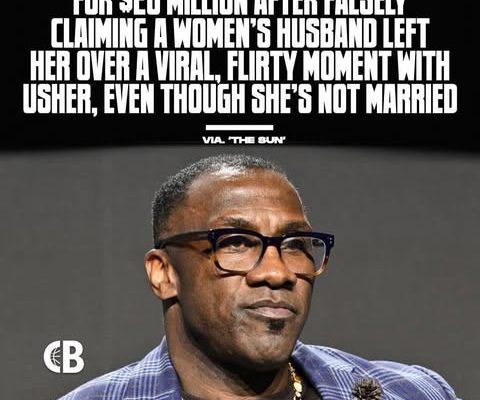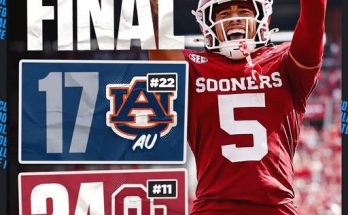Shannon Sharpe, one of the most recognizable voices in modern sports media, finds himself at the center of a legal firestorm, facing a $20 million defamation lawsuit that could have far-reaching implications—not only for his own reputation and career, but for the broader conversation around journalistic integrity, media commentary, and personal responsibility in the age of 24-hour sports entertainment. The lawsuit stems from a controversial and allegedly false statement Sharpe made on-air regarding a woman’s husband, which has since ignited debate over the boundaries between commentary, speculation, and actionable defamation.
The incident in question occurred during a broadcast of Sharpe’s podcast, a popular and widely syndicated show that often blends sharp sports takes with cultural commentary and personal observations. During one particular episode, Sharpe referenced an anonymous woman in a discussion involving infidelity and betrayal, claiming outright that her husband had engaged in morally and legally questionable behavior. Though the man’s name was not initially disclosed, identifying details reportedly shared in follow-up commentary and on social media made it easy for the public to determine his identity. Within hours, his name began trending online, and public scrutiny soon followed—despite no evidence or formal accusations against him ever existing prior to Sharpe’s comments.
The man at the center of the allegations, who is now the plaintiff in this explosive legal case, is not a public figure in the traditional sense. A successful private business owner with no prior history of controversy, he has claimed in court filings that Sharpe’s statements were entirely fabricated and had catastrophic effects on his personal and professional life. His legal team argues that the podcast host’s words caused him to lose business contracts, suffer immense reputational harm, and endure emotional and psychological distress as a result of the public attention and character attacks that ensued.
According to the complaint filed in federal court, the plaintiff is seeking $20 million in damages, asserting that Sharpe’s accusations were not only false but made with “reckless disregard for the truth.” The language of the lawsuit emphasizes that Sharpe failed to conduct any journalistic due diligence before broadcasting the claims to millions of viewers and listeners. Furthermore, the plaintiff’s attorneys argue that Sharpe’s large platform carries a significant degree of influence and that his failure to verify his statements constitutes a clear abuse of that power.
For Sharpe, the fallout has been swift and unpredictable. Though he remains a popular figure in sports commentary, with active roles on television, streaming platforms, and social media, the lawsuit has introduced a serious legal and reputational challenge. Public reaction has been mixed. Some fans have stood by Sharpe, insisting that his commentary should be interpreted as opinion or satire, not as literal truth. Others, however, have been more critical, suggesting that the incident represents a broader problem with the way influential figures use their platforms to push narratives without accountability.
Legal experts following the case suggest that it may hinge on the question of actual malice—a standard set by the landmark Supreme Court case New York Times Co. v. Sullivan for defamation claims involving public figures. However, since the plaintiff in this case is a private individual, he may face a lower burden of proof. He will not be required to demonstrate that Sharpe acted with actual malice, but rather that the statements were false and caused measurable harm. If the court finds that Sharpe acted negligently or with reckless disregard for the truth, the case could result in a major financial judgment and potentially reshape the boundaries of sports media commentary.
Sharpe, for his part, has remained relatively quiet about the lawsuit in public forums. A brief statement from his legal team denied the allegations and asserted that his commentary was protected under the First Amendment. They also indicated that Sharpe would vigorously defend himself in court and challenge what they described as an “opportunistic attempt to silence provocative commentary.” They argue that the plaintiff is seeking to exploit Sharpe’s fame and financial success, and that the statements in question were part of a broader and subjective discussion, not direct allegations of criminal behavior.
Still, critics argue that Sharpe’s status as a media personality does not absolve him from the consequences of his words, especially when those words have real-life implications for private individuals. Media ethics scholars have pointed to this case as emblematic of a growing tension in modern journalism and commentary: the balance between free expression and the potential for misinformation. In an age where hot takes can go viral within minutes and reputations can be destroyed by a few careless remarks, the responsibility borne by commentators has never been more significant.
Complicating matters further is the evolving nature of sports media itself. Unlike traditional news broadcasts with rigid editorial standards, sports talk shows and podcasts often blend entertainment, gossip, and opinion into a fluid format that can sometimes blur the line between fact and fiction. Sharpe, who built much of his brand on his candid, brash, and often humorous commentary, may now be facing the limits of that style. The very persona that made him a star could now be used against him in court as evidence of reckless disregard.
The implications of this lawsuit extend far beyond Shannon Sharpe and the unnamed plaintiff. If the court rules in favor of the plaintiff and awards the requested $20 million in damages, it could create a chilling effect on sports commentators across the industry. Legal liability for off-the-cuff remarks could prompt networks and content creators to impose stricter guidelines, vet scripts more thoroughly, and reconsider how they handle controversial subjects. Some argue that this would be a positive development, encouraging more responsible and ethical reporting. Others worry that it could stifle creativity and spontaneity, two qualities that make sports commentary engaging in the first place.
In the meantime, media organizations and legal analysts alike are closely watching the case unfold. Pretrial motions are expected to begin in the coming weeks, with both sides already signaling a readiness for a protracted legal battle. The plaintiff has indicated that he will be seeking not just monetary compensation but also a public retraction and apology, something Sharpe has yet to offer. Whether the case is ultimately settled out of court or proceeds to a jury trial, its outcome is likely to reverberate across the media landscape for years to come.
As for the broader public, the case raises difficult questions about accountability and trust. Can prominent media personalities say whatever they want without fear of repercussion, especially if their words target private individuals? Should platforms and sponsors bear some responsibility for the content they promote? And at what point does a hot take become a harmful lie?
While the legal system may soon provide some answers, the cultural reckoning may take longer to unfold. What’s clear is that Shannon Sharpe, once known only for his athletic prowess and his animated takes on sports news, now finds himself in a much more serious and consequential arena—one where the stakes are higher, the rules less forgiving, and the outcome far less certain.



